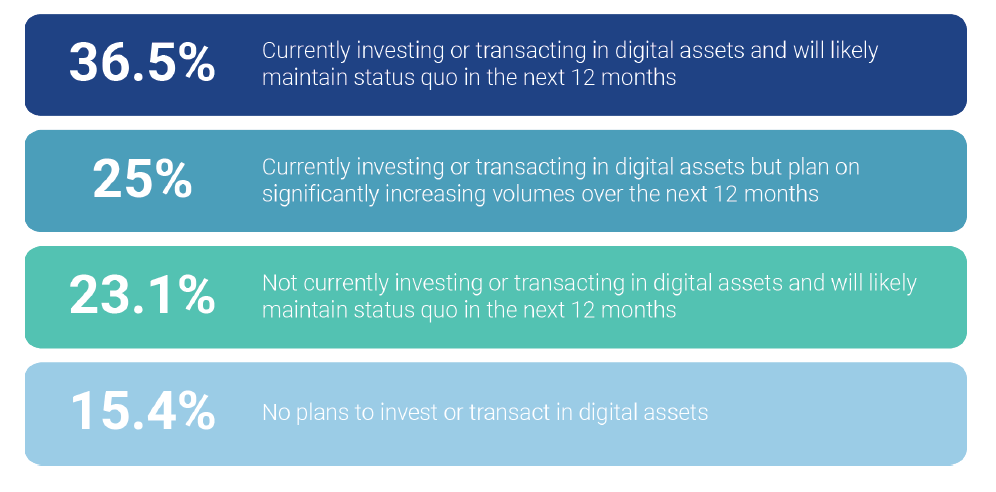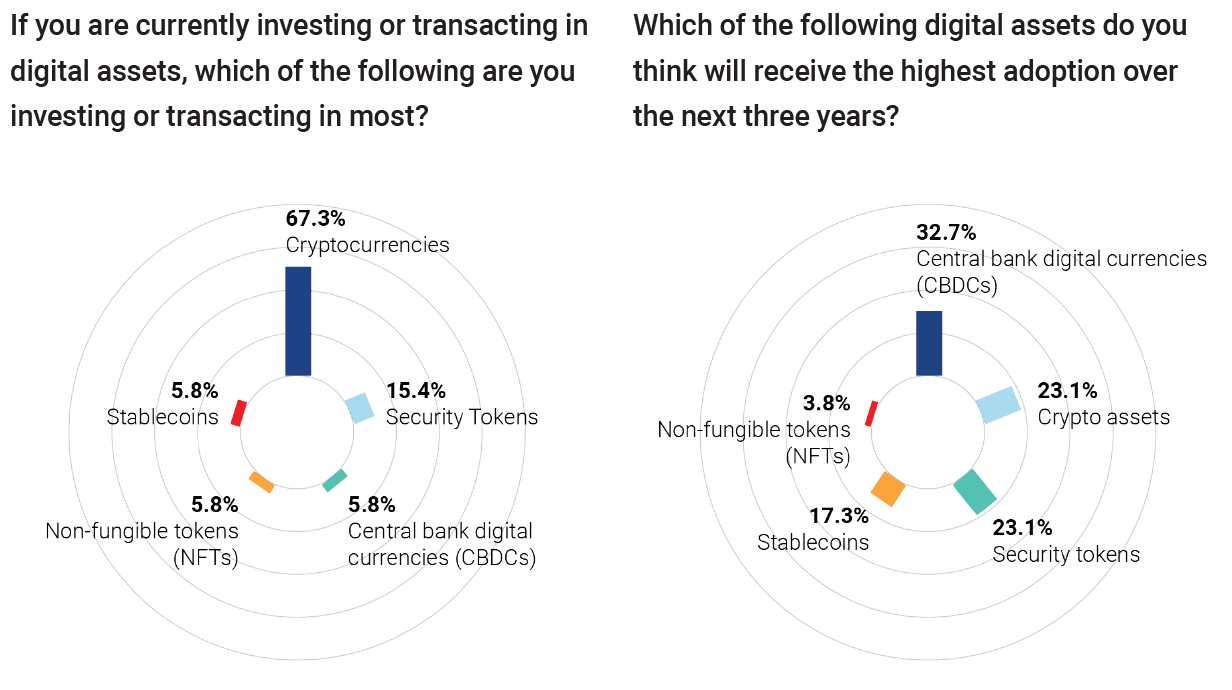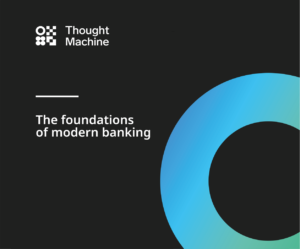As the financial landscape undergoes a digital revolution, institutional investors are increasingly turning their attention to digital assets such as cryptocurrencies and Central Bank Digital Currencies (CBDCs).
A recent report by SBI Digital Asset Holdings (SBI DAH) sheds light on the growing interest and adoption of these innovative financial instruments among institutional investors.
The report, based on a survey of over 50 financial institutions across Asia, reveals that the digital assets space is poised for significant growth as institutional investors seek to diversify their portfolios and capitalise on the benefits of blockchain technology.
Institutional Investors Surging Demand for Digital Assets
The SBI DAH report highlights a notable surge in institutional demand for digital assets. Nearly 60% of the surveyed institutional investors reported increased exposure to digital assets over the past 12 months, with an equal percentage noting a rise in client demand for tokenised securities. This trend underscores the growing recognition of digital assets as a legitimate and diversified investment class.
Among the institutional investors already engaged in digital asset investments, 40% expressed their intention to maintain their investments in the coming year, while an additional 25% plan to significantly increase their investment volume. This commitment to digital assets demonstrates the confidence institutional investors have in the long-term potential of this emerging asset class.

Institutional investors focus on digital assets. Source; SBI DAH
The Future of Digital Assets: CBDCs and Cryptocurrencies
Looking ahead, the survey participants anticipate greater adoption of various digital assets over the next three years. Central Bank Digital Currencies (CBDCs) topped the list, with 33% of respondents foreseeing their widespread adoption.
CBDCs offer a digital representation of fiat currencies, combining the stability and trust associated with central bank-issued money with the efficiency and programmability of digital assets.
Cryptocurrencies followed closely behind CBDCs, with 23.5% of institutional investors expecting increased uptake in the coming years. The growing interest in cryptocurrencies can be attributed to several factors, including their potential as a hedge against inflation, their decentralised nature, and their ability to provide diversification benefits to investment portfolios.
As the cryptocurrency market matures and gains mainstream acceptance, institutional investors are increasingly recognising the potential of digital currencies like Bitcoin and Ethereum.
The development of institutional-grade custody solutions, the emergence of regulated cryptocurrency exchanges, and the growing acceptance of cryptocurrencies as a means of payment are all contributing to the increased confidence among institutional investors.

Digital asset classes that institutional investors are most interested in. Source: SBI DAH
Tokenised securities also garnered significant interest, with 21.6% of respondents predicting their growth in the coming years. Tokenised securities, which represent ownership of real-world assets on a blockchain, offer several advantages over traditional securities.
These include increased liquidity, faster settlement times, and the ability to fractionalise ownership, making them more accessible to a wider range of investors.
Benefits of Tokenised Securities for Institutional Investors
The survey results highlight the growing interest among institutional investors in tokenised securities. A resounding 76% of respondents expressed their intention to invest in tokenised securities, driven by a range of compelling benefits.
One of the primary advantages cited by institutional investors is the potential for lower issuance costs. By leveraging blockchain technology, the process of issuing and managing securities can be streamlined, reducing the need for intermediaries and associated costs.
Moreover, tokenised securities offer the potential for shorter settlement periods. Traditional securities transactions often involve complex and time-consuming settlement processes, which can take several days to complete.
In contrast, tokenised securities can be settled almost instantly, thanks to the real-time nature of blockchain transactions. This not only reduces settlement risk but also improves liquidity and enables faster access to funds.

Real world assets that respondents wanted to see tokenised most, real estate took the top spot. Source: SBI DAH
Another key benefit of tokenised securities is the ability to access new or global capital. Tokenisation enables the fractionalisation of ownership, allowing investors to purchase smaller portions of an asset.
This democratisation of investment opportunities can attract a wider pool of investors, including those who may have previously been excluded due to high minimum investment thresholds. Furthermore, the global nature of blockchain networks facilitates cross-border investments, opening up new avenues for capital raising and diversification.
When asked about the specific benefits of tokenising real-world assets, such as real estate, nearly half of the participants cited reduced intermediaries as the primary advantage.
Tokenisation enables the direct ownership and transfer of assets without the need for multiple intermediaries, such as brokers, custodians, and clearing houses. This not only reduces costs but also increases transparency and efficiency in the investment process.
Overcoming Institutional Barriers to Adoption
While the benefits of digital assets are compelling, institutional investors also recognise the existence of barriers that currently hinder widespread adoption. The SBI DAH report sheds light on these challenges and highlights the need for collaborative efforts to overcome them.
One of the primary barriers identified by the survey respondents is the absence of institutional-grade infrastructure. Nearly a quarter (23.5%) of the participants cited this as the key impediment to investing in digital assets.
Institutional investors require robust, secure, and scalable infrastructure that can support the unique requirements of digital asset transactions, such as high-speed trading, complex settlement processes, and secure custody solutions.
To address this challenge, the industry must focus on developing and implementing institutional-grade solutions across the entire digital asset value chain. This includes establishing reliable trading platforms, secure custody providers, efficient settlement systems, and interoperable blockchain networks.

Key barriers restricting institutions from investing in digital assets. Source: SBI DAH
Collaboration among industry stakeholders, including financial institutions, technology providers, and regulators, will be crucial in building the necessary infrastructure to support the growth of the digital asset ecosystem.
Regulatory ambiguity is another significant barrier highlighted by the survey, with 13.7% of respondents citing it as a key concern. The lack of clear and consistent regulatory frameworks for digital assets creates uncertainty for institutional investors, who must navigate a complex and evolving landscape of laws and regulations across multiple jurisdictions.
By creating a stable and predictable regulatory environment, authorities can foster greater confidence among institutional investors and facilitate the responsible growth of the digital asset market.
The lack of a trusted distribution network is also identified as a barrier to adoption, with 11.8% of respondents citing it as a concern. The current fragmented nature of the digital asset market, with numerous exchanges and trading platforms operating across different jurisdictions, can create challenges in terms of liquidity, price discovery, and counterparty risk.
Wider Market Adoption Driving Institutional Investors
Furthermore, the survey highlights the importance of wider market adoption in driving institutional investment in digital assets. Around 15% of participants cited the lack of broader market acceptance as a factor influencing their current investment decisions.
As more institutional investors enter the digital asset space and mainstream adoption grows, network effects can create a virtuous cycle of increasing liquidity, stability, and confidence in the market.
To accelerate wider market adoption, the industry must focus on education and awareness initiatives aimed at demystifying digital assets and highlighting their potential benefits. This includes engaging with institutional investors, regulators, and the broader public to promote understanding of the technology, its use cases, and its risks.
As the digital asset ecosystem matures, institutional investors will play a pivotal role in shaping the future of financial markets. By embracing digital assets and driving the demand for compliant, scalable, and secure solutions, institutional investors can unlock new opportunities and contribute to the digital transformation of the global financial landscape.
Featured image credit: Edited from Freepik
- SEO Powered Content & PR Distribution. Get Amplified Today.
- PlatoData.Network Vertical Generative Ai. Empower Yourself. Access Here.
- PlatoAiStream. Web3 Intelligence. Knowledge Amplified. Access Here.
- PlatoESG. Carbon, CleanTech, Energy, Environment, Solar, Waste Management. Access Here.
- PlatoHealth. Biotech and Clinical Trials Intelligence. Access Here.
- Source: https://fintechnews.sg/96169/blockchain/more-than-a-quarter-of-asian-financial-institutional-investors-are-investing-in-digital-assets/
- :is
- :not
- $UP
- 1
- 11
- 12
- 12 months
- 1232
- 13
- 15%
- 21
- 23
- 250
- 300
- 32
- 34
- 50
- 690
- 7
- a
- ability
- About
- absence
- accelerate
- acceptance
- access
- accessible
- across
- Additional
- address
- Adoption
- ADvantage
- advantages
- against
- ahead
- aimed
- All
- Allowing
- almost
- already
- also
- Ambiguity
- among
- an
- and
- Another
- anticipate
- ARE
- around
- AS
- asia
- asian
- asked
- asset
- asset class
- Assets
- associated
- At
- attention
- attract
- Authorities
- avenues
- awareness
- Bank
- barrier
- barriers
- based
- BE
- been
- begin
- behind
- benefit
- benefits
- Bitcoin
- bitcoin and ethereum
- blockchain
- Blockchain networks
- blockchain technology
- blockchain transactions
- broader
- brokers
- Building
- but
- by
- CAN
- capital
- Capital Raising
- capitalise
- caps
- cases
- CBDCs
- central
- Central Bank
- central bank digital currencies
- CENTRAL BANK DIGITAL CURRENCIES (CBDCS)
- chain
- challenge
- challenges
- cited
- citing
- class
- classes
- clear
- Clearing
- client
- closely
- collaborative
- combining
- coming
- coming years
- commitment
- compelling
- complete
- complex
- compliant
- Concern
- confidence
- consistent
- content
- contrast
- contribute
- contributing
- Costs
- Counterparty
- create
- creates
- Creating
- credit
- cross-border
- crucial
- cryptocurrencies
- cryptocurrency
- Cryptocurrency Exchanges
- cryptocurrency market
- currencies
- Current
- Currently
- custodians
- Custody
- cycle
- Days
- decentralised
- decisions
- Demand
- demonstrates
- developing
- Development
- different
- digital
- Digital Asset
- Digital Assets
- digital currencies
- digital revolution
- Digital Transformation
- direct
- discovery
- distribution
- diversification
- diversified
- diversify
- driven
- driving
- due
- ecosystem
- edited
- Education
- effects
- efficiency
- efficient
- efforts
- embracing
- emergence
- emerging
- enables
- end
- engaged
- engaging
- Enter
- Entire
- Environment
- equal
- establishing
- estate
- ethereum
- evolving
- Exchanges
- excluded
- existence
- expecting
- Exposure
- expressed
- facilitate
- facilitates
- factor
- factors
- faster
- Fiat
- fiat currencies
- financial
- Financial institutions
- Financial Instruments
- fintech
- Focus
- followed
- For
- foreseeing
- form
- Foster
- fractionalise
- fragmented
- frameworks
- from
- funds
- Furthermore
- future
- Gains
- garnered
- Global
- global financial
- greater
- Growing
- growing interest
- Grows
- Growth
- Half
- Have
- hedge
- High
- Highlight
- Highlighted
- highlighting
- highlights
- hinder
- Holdings
- hottest
- houses
- HTTPS
- identified
- image
- implementing
- importance
- improves
- in
- include
- includes
- Including
- Increase
- increased
- Increases
- increasing
- increasingly
- industry
- inflation
- influencing
- Infrastructure
- initiatives
- innovative
- instantly
- Institutional
- institutional investment
- institutional investors
- institutional-grade
- institutions
- instruments
- Intention
- interest
- interested
- intermediaries
- interoperable
- Invest
- investing
- investment
- investment opportunities
- Investments
- Investors
- involve
- issuance
- issuing
- IT
- ITS
- jpg
- jurisdictions
- Key
- Lack
- landscape
- Laws
- Laws and regulations
- legitimate
- leveraging
- light
- like
- Liquidity
- List
- long-term
- lower
- mailchimp
- Mainstream
- mainstream adoption
- maintain
- Making
- managing
- Market
- Markets
- matures
- max-width
- May..
- means
- minimum
- money
- Month
- months
- more
- most
- multiple
- must
- Nature
- Navigate
- nearly
- necessary
- Need
- network
- network effects
- networks
- New
- news
- next
- notable
- noting
- numerous
- of
- offer
- often
- on
- once
- only
- opening
- operating
- opportunities
- or
- over
- Overcome
- ownership
- participants
- past
- payment
- percentage
- periods
- pivotal
- plan
- Platforms
- plato
- Plato Data Intelligence
- PlatoData
- Play
- poised
- pool
- portfolios
- portions
- potential
- Predictable
- predicting
- previously
- price
- primary
- process
- processes
- promote
- provide
- providers
- public
- purchase
- Quarter
- raising
- range
- real
- real estate
- real world
- real-time
- recognise
- recognising
- recognition
- Reduced
- reduces
- reducing
- regulated
- regulations
- Regulators
- regulatory
- reliable
- report
- Reported
- represent
- representation
- require
- Requirements
- resounding
- respondents
- responsible
- restricting
- Results
- Reveals
- Revolution
- Rise
- Risk
- risks
- robust
- Role
- SBI
- scalable
- secure
- Securities
- see
- Seek
- Settled
- settlement
- several
- shaping
- shorter
- significant
- significantly
- Singapore
- smaller
- Solutions
- Source
- Space
- specific
- Spot
- Stability
- stable
- stakeholders
- streamlined
- such
- support
- surge
- surging
- Survey
- surveyed
- Systems
- Take
- Technology
- terms
- than
- thanks
- that
- The
- The Future
- their
- Them
- These
- this
- those
- three
- time-consuming
- times
- to
- tokenisation
- tokenised
- tokenising
- took
- top
- topped
- Trading
- Trading Platforms
- traditional
- Transactions
- transfer
- Transformation
- Transparency
- Trend
- Trust
- trusted
- Turning
- Uncertainty
- undergoes
- underscores
- understanding
- unique
- unlock
- uptake
- use
- value
- various
- volume
- wanted
- which
- while
- WHO
- wider
- widespread
- will
- with
- without
- world
- World Assets
- year
- years
- Your
- zephyrnet













